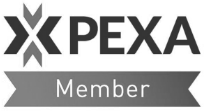Employment Law
Our Employment Law Expertise
Contracts of Employment and Modern Awards
When an employer and employee enter into an employment relationship, specific and certain terms and conditions attach to that relationship, which are usually reduced to a written contract of employment. In the Australian jurisdiction of workplace relations, the contract is generally underpinned by reference to an Award. For example, office workers (including receptionists, executive or personal assistants and administrators) are generally covered by the terms of the Clerks’ (Private Sector) Award 2010. This award sets the minimum terms and conditions of employment that apply to the employee’s employment. Modern awards are industry specific. Thus there are awards that cover employees in most industries and occupations.
Due to the large number of awards in operation and their complexity, it is best to obtain legal advice from Shore Lawyers to ensure that you refer to the relevant award for your business, undertaking or enterprise. We can also provide advice to employees and employers in relation to contracts of employment.
Termination of Employment & Performance Management
We would like to assure you that your development application / DA approval process can run much smother with engagement of competent legal advisors right at from the initiation of the application.
Experienced in all aspects of civil litigation, we can also help you resolve issues with the local council if it mishandles the development application process and you end up with a DA refusal as a result.
We also help clients work with circumstances where council has given you adverse notices under the Environmental Planning and Assessment Act (NSW) 1979.
Please feel free to Contact Shore Lawyers to arrange for your initial consultation.
Occupational Health & Safety
In today’s business environment, occupational or workplace health and safety matters raise important and significant legal risks and commercial considerations.
Every employer irrespective of the size of their workforce or the industry in which they operate have obligations in ensuring that they provide employees with safe systems of work, which include safe premises to work. These obligations are mutual. This means that employers and employees have significant obligations to ensure the health safety and welfare of each other.
Some industries may be more accident or incident prone than others. Industries including road transport, building/construction, agriculture and consumer manufacturing will have robust industry regulations in place. Whereas employers in hospitality, gaming, food-service, medical, retail, clerical and general administrative industries will each have different pressures specific to their workplaces and business environments.
If you are an employee, an employer, volunteer or visitor to a workplace, Shore Lawyers can advise you as to your rights and obligations under OHS.
Please feel free to Contact Shore Lawyers to arrange for your initial consultation.





Our Professionals

Tatiana (Tia) Stack
Practice Director

Madeleine Stevens
Family, Employment and General Litigation Lawyer
What Our Clients Said…

Lisa Huwaidi
Knowledgeable staff. Rao really put me at ease and talked me through my options. He made me feel really comfortable and listened to all of my concerns. Highly recommend.

Anna Kuang
I am so grateful to have Rao, Tatiana and Emily in the Team. They are extremely knowledgeable and professional with level of service. Highly qualified, provided excellent legal guidance & support.

Birth D
I am eternally grateful to Tatiana and her friendly team – Rao, Aliya, Emily, Anastasia and everyone with whom we interacted, for the highly qualified legal assistance provided and for the high moral standards in the conduct of the case.
I recommend Tatiana to anyone who needs a high-powered lawyer, whom your opponent will be tremble of.
Thank you very much.

Zohair Ali Malick
Exceptional service from the team of Shore Lawyers. Their professionalism, expertise, and attention to detail were truly commendable. A heartfelt thanks to Rao, Emily, and Aj for their unwavering support and strategic guidance. Their dedication ensured a seamless process and a successful outcome. Highly recommended!

Junaid Shahid
My Case was very complex but the way Tatiana and her team stuck with me through the Years and fought the case in the best way. I felt like My family is fighting for me in Courts. I want to express my most sincere thanks for the most Professional representation.

Mo FD
I’m glad I used Shore Lawyers service. Special thanks to Mr Zahid, Paralegal/Practice Manager.
The team guided me step by step through my legal matter with patience and understanding. They are highly educated and knowledgeable, and Rao’s support met all my legal needs. I strongly recommend Shore Lawyers’ services.
Thank you Rao and Shore Lawyers

Baljit Singh
Shore Lawyers all staff so professional and responsive, and I received so much support . All the staff is very friendly and helpful. Would very much recommend them to anyone who need a lawyer
FAQ's
Employment law in Australia governs the relationship between employers and employees, covering issues such as wages, working conditions, termination, discrimination, and workplace rights. It is regulated by various laws, including, most notably, the Fair Work Act 2009, which sets national workplace standards.
The Fair Work Act 2009 is the primary legislation that governs employment relations in Australia. It sets out the rights and responsibilities of employees and employers, including the National Employment Standards (NES), minimum wage, unfair dismissal protections, and rights to leave and flexible working arrangements.
The National Employment Standards (NES) provide 11 minimum entitlements for employees, including maximum weekly hours, annual leave, parental leave, public holidays, and notice of termination. All employers must comply with these standards unless an enterprise agreement or contract provides more favourable terms.
Unfair dismissal occurs when an employee is terminated in a harsh, unjust, or unreasonable manner. Employees who have been employed for at least 6 months (or 12 months in small businesses) can apply to the Fair Work Commission for an unfair dismissal claim. The Commission will assess whether the dismissal was fair and lawful.
Employers in Australia are required under Work Health and Safety (WHS) laws to provide a safe work environment. This includes identifying hazards, conducting risk assessments, and implementing controls to reduce risks. Employers must also provide training and supervision to ensure workplace safety standards are met.
An employee works under a contract of employment and is entitled to benefits such as minimum wages, superannuation, and leave entitlements.
A contractor works under an independent contract, typically controlling their own work and business. Contractors are not entitled to employee benefits but must pay their own taxes and superannuation.
Australian laws, including the Fair Work Act, Racial Discrimination Act 1975, and Sex Discrimination Act 1984, prohibit discrimination in the workplace based on attributes such as race, gender, age, disability, religion, and sexual orientation. Employees who face discrimination can file complaints with the Fair Work Commission or the Australian Human Rights Commission.
Under the NES, full-time employees are entitled to:
- Annual leave: 4 weeks of paid leave per year.
- Personal leave: 10 days of sick or carer’s leave.
- Parental leave: Up to 12 months of unpaid leave for the birth or adoption of a child for permanent employees who have completed at least 12 months of continuous service. Casual employees are also entitled to unpaid parental leave if they have been working with their employer for a continuous period of 12 months on a regular and systematic basis, and there is a reasonable expectation of continuation of work on a regular and systematic basis had it not been for the birth or adoption of a child.
Redundancy occurs when an employee’s role is no longer required due to changes in the business. Employees who are made redundant may be entitled to redundancy pay depending on their length of service. Generally, employers must provide notice, consult with the employee, and offer support during the redundancy process.
Workplace bullying is repeated unreasonable behaviour that creates a risk to health and safety. Employees can report bullying to their employer or the Fair Work Commission, which may issue orders to stop the bullying. Employers must take reasonable steps to prevent and address bullying, which may include implementing and enforcing workplace policies and procedures.
Get IN TOUCH

Our Location

Call Us ON

